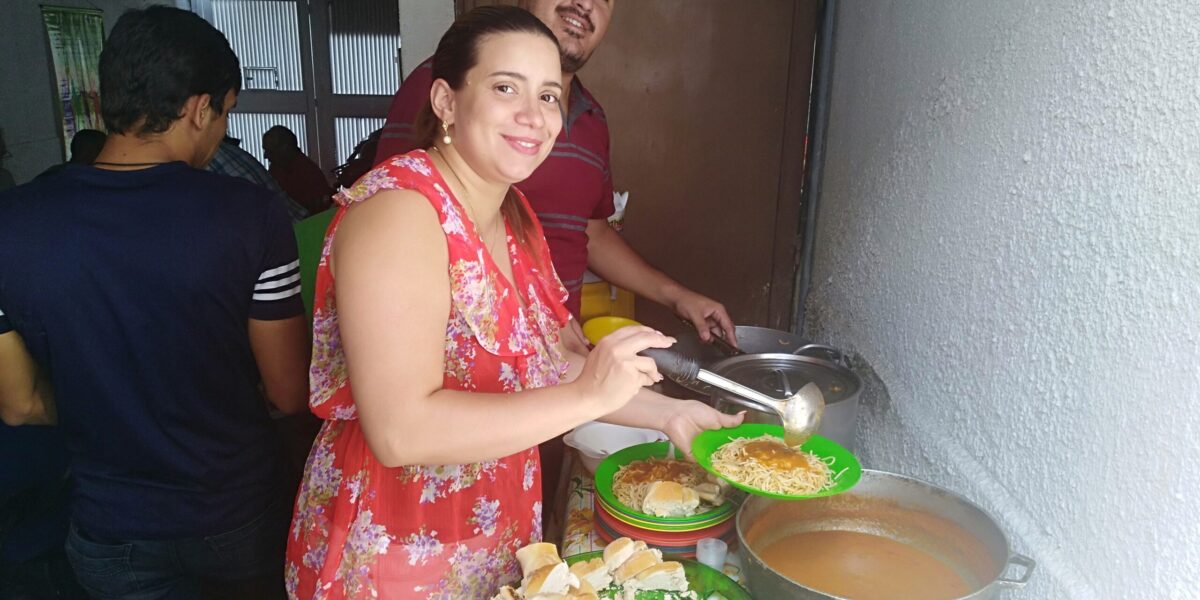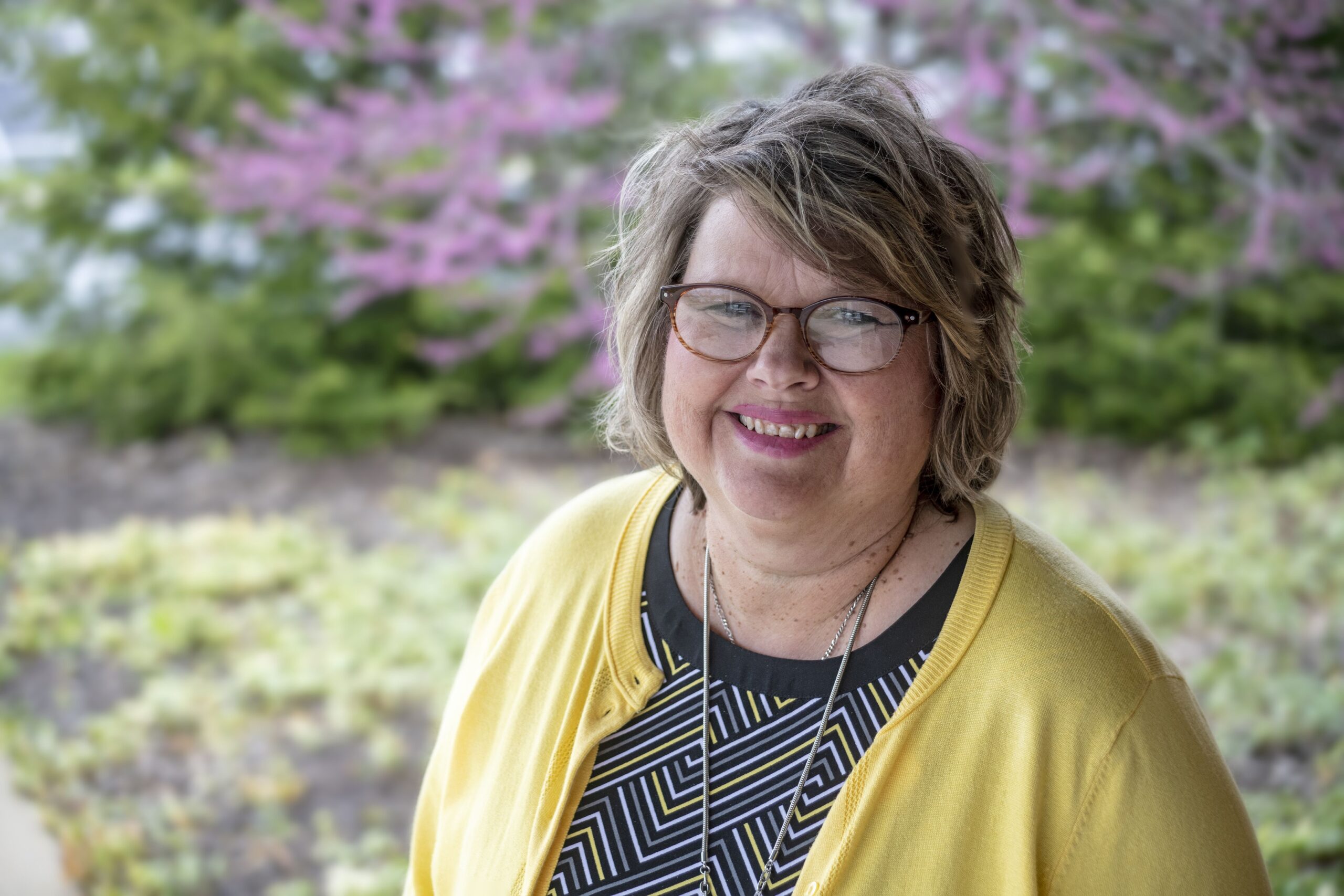As this article was being published, Mennonite Mission Network got news that Erwin Mirabal was hospitalized with COVID-19. Mirabal, president of the Mennonite Church in Venezuela and pastor of the Caracas congregation, was diagnosed with COVID-19 on July 20 and was admitted to a private clinic that night after being turned away from eight other health facilities. According to Linda Shelly, Mission Network’s director for Latin America, the health system in Venezuela was severely strained even prior to the current global pandemic. Please join us in prayer for Mirabal and others who are suffering with illness in Venezuela.
NEWTON, Kansas (Mennonite Mission Network) — "Old bread isn’t hard. What is hard is not having bread." This is one reflection that María Elena Rodríguez, pastor of Comunidad Menonita de Camino on Margarita Island, forwarded to the Venezuelan Mennonite WhatsApp group recently during the COVID-19 pandemic.
Providing fellowship through this online group as well as serving the hungry are some of the many ways that Venezuelan Mennonites are sharing food for body and soul during the pandemic.
As conditions worsen, Venezuelan Mennonite church leaders are trusting God and caring for each other, their neighbors, and the people who are most vulnerable. Erwin Mirabal, president of the Asociación Civil Red de Misiones Menonita de Venezuela, a partner of Mennonite Mission Network, recorded testimonies and sent a report that exemplifies how the church is sharing God’s abundance in a time of lack.
"Venezuela is undergoing a political and economic crisis like never in its recent history," said Mirabal, noting that some experts consider Venezuela’s inflation rate to be the highest in the world. "Day-to-day living has become increasingly complicated. The lack of basic services such as water, electricity, Internet services, and gas for cooking, combined with the lack of cash, make the situation desperate."
"I have seen entire families in garbage dumps seeking to satisfy hunger," Mirabal wrote from the city of Caracas. "I have watched with sadness as the elderly are sent back from hospitals because there is no possibility to care for them, nor medicines to meet their needs."
 Haydee Vegas shares a mural made by the children in the literacy reinforcement program she leads at the Caracas church. The mural reflects their teaching and modeling of relating in peace and love. Photo by Linda Shelly.
Haydee Vegas shares a mural made by the children in the literacy reinforcement program she leads at the Caracas church. The mural reflects their teaching and modeling of relating in peace and love. Photo by Linda Shelly.
On Isla Margarita, Rodriguez supports the community while also meeting some of her needs by bartering and sharing what she produces in her yard, like lemons, papayas, or "topochos" (bananas). "We have passed through very difficult times, but we have also experienced many blessings that the Lord has given us, like when we don’t have electricity, or gas for cooking, or water or food," testified Rodríguez. "There is always someone who comes … This pandemic has helped us develop our minds more and learn to depend more on the Lord … Some people think God isn’t real, and that we do all this with our own strength. That isn’t so. All this has been a time of learning to depend on our God."
Two congregations on the island and one in Caracas shared testimonies of generosity amidst scarcity. These churches are part of the Venezuelan Mennonite conference that was established in 2009 with a network of churches, study centers, and ministries on Margarita Island, the mainland of Venezuela.
- Prayer, worship services, and Bible studies take place mainly in small groups in homes, which broaden leadership and results in more people willing to hear the word of the Lord.
- Coffee and bread: Church members grind coffee and bake bread to share with people in need. On days with bread and coffee, many testified that it is all they consumed that day.
- Community pots: People bring what they have, especially on Sundays. Together, everyone enjoys the soup that they create from what they have shared.
- Food distribution: Mirabal wrote, "Sometimes we have purchased sardines to be distributed among the church families and some in the community, or we buy corn flour, spaghetti, lunch meat, and sugar … We do what we can."
- Water: Water service in some areas has become more complicated with the pandemic, and church members are delivering water in 40-liter containers.
- Medicines: Travelers from Colombia prior to the pandemic brought medicines that are shared to treat flu, fever, pain, tension, asthma, and other ailments.
- Literacy reinforcement: A Caracas program continues to help with children’s education, though due to COVID-19 precautions, the number of participants is reduced. Mirabal wrote, "We have also needed to attend to some behavior situations with children and parents as a result of confinement."
- Elder support: Many isolated elderly people don’t have cell phones with WhatsApp capability. Church members visit and help them connect with family members, many of whom have left the country due to the economic situation. They also help clean their homes, or bathe, cut hair, and share medicines.
- Cooperative games for peace: Before the pandemic, 60 teachers and about 1,200 students participated in this popular program in Caracas. This program paused when the schools closed.
"In the midst of a dire situation, their focus is not on making sure ‘I have enough,’ but on serving others," said Linda Shelly, director for Latin America for Mission Network. "Pastor Euclides Bauza testified, ‘With what we receive, we help the community where we are, the church community, and people who don’t attend, but who have needs.’"
Mission Network, with the Iglesia Cristiana Menonita de Colombia and Central Plains Mennonite Conference, partner together in support of the Venezuelan churches. This includes sending grinders for corn and coffee, medicines, and funds as well as providing prayers and a sense of solidarity for mutual encouragement.








